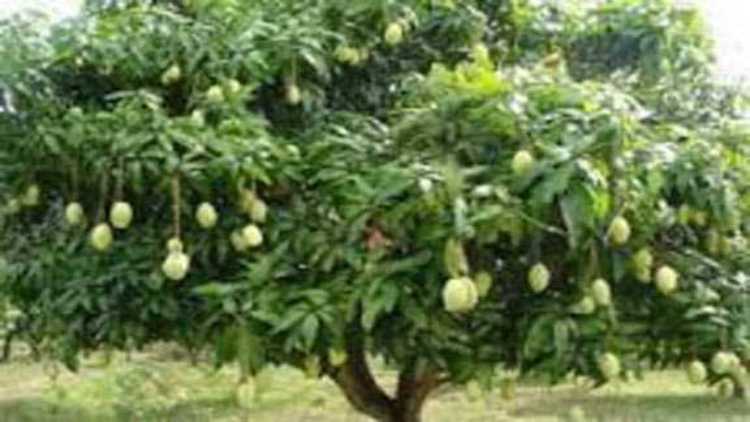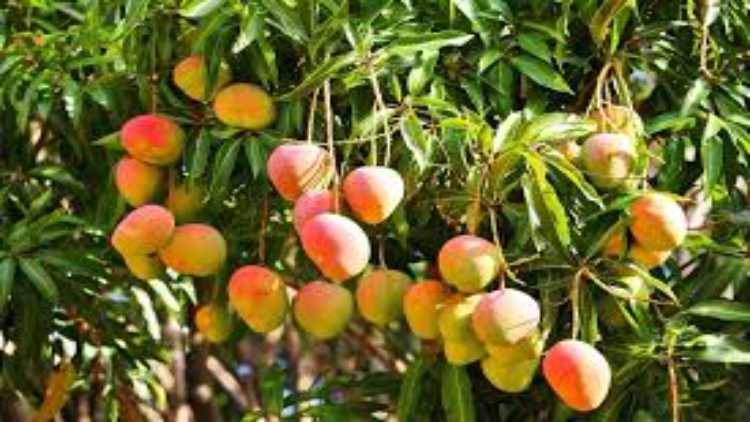
Seraj Anwar/Patna
Dudhiya Malda, a famous variety of mango cultivated in Bihar and is famously irrigated with milk isgaining popularity in many countries.
This variety was brought from what is today Pakistan; irrigated with milk, and hence given the name that translates as Milky Malda (Malda being the place). In the world of mango cultivators, if Lucknow's Dusseri is the queen of mangoes then Digha's Malda is the king.
In Bihar, Dudhiya Malda is known as the King of Mango.
In the year 1952, famous film actor Raj Kapoor and singer Suraiya came to Digha's mango orchards and picked cartons of the fruit for carrying to Mumbai.
India’s President, Dr Rajendra Prasad, who hailed from Bihar introduced Dudhiya Malda to many personalities including Indira Gandhi and they became fans of this fruit. Dr Rajendra Prasad himself was very fond of Digha's Malda.
During his sojourn in Rashtrapati Bhavam, Rajendra Babu would often mention Digha ka Malda in his conversations. In 1962, when the President came to Patna, the Malda had a very good harvest. Since that time each year, a consignment of mangoes is sent from Digha to prominent personalities, politicians, industrialists, and celebrities.

Fida Hussain was the Nawab of Lucknow, who is credited with bringing a plant of this particular species from what is the present-day Shah Faesal Mosque in Islamabad, Pakistan.
During his stay in Patna, Fida Hussain had planted more than 50 Malda mango trees in and around Digha railway crossing. It is said that Nawab Saheb had many cows. He ordered the surplus milk to be poured into the root areas of the mango trees. When the tree came to fruition, a milk-like substance came out of it. This gave the name to the gruit.
After Nawab Fida Hussain, the credit for promoting this variety goes to Mohd. Irfan. At one time the entire area was known as Irfan's Garden. Under the supervision of Mohammad Irfan, the milky Malda earned a lot of fame at the national and international level. The fruit variety was a winner in the All India Mango Exhibition, year after year.
In 1997 in the Mango Exhibition held in Singapore, Digha Mango of Patna was placed number one for its flavour and fragrance.
After Mohammad Irfan's death, the garden slowly vanished; houses were built on a part of it and the other part was destroyed by waterlogging. His sons could not save the legacy.
Irfan's gardens are now part of the St. Xavier's College campus. The college has been declared a green area in 2009. The campus has been divided into three parts, which include Atmadarshan, Tarumitra and Teacher Training College. The Church mission is helping to maintain the identity of Digha by helping.
The orchards at Digha are rapidly shrinking. Trees planted a hundred years ago are decaying and too crowded.
Today the orchard is left with some 100 trees. Still people come here to buy the fruit.
June is the harvest season for this variety and it’s in this month that the variety is available in the market.
Malda mango is also grown in Bhagalpur and some other districts of Bihar, but the taste of milky Malda of Digha Ghat is quite different from it. This variety is famous for its sweetness, distinctive colour, smell, more pulp and thinner kernels and peels.
Digha is situated right on the bank of river Ganga. Digha resident Hasrat Hussain Awaaz tells The Voice that the aroma of the delicious mango that used to fill the area is slowly disappearing. Once there was an empire of milky Malda mango orchards in the areas of Digha and Rajiv Nagar of Patna. Now concrete structures have taken over the orchards.
Some gardens have survived on Digha and Ashiana Road. Hasrat says that mangoes were sold by count in the sixties, not at the rate of kilos. Then twelve to fourteen mangoes were available for one rupee. Hasrat emphasizes the need to plant milky Malda trees on a large scale in other parts of the state and says that the government should focus on the conservation of this variety of mango.
